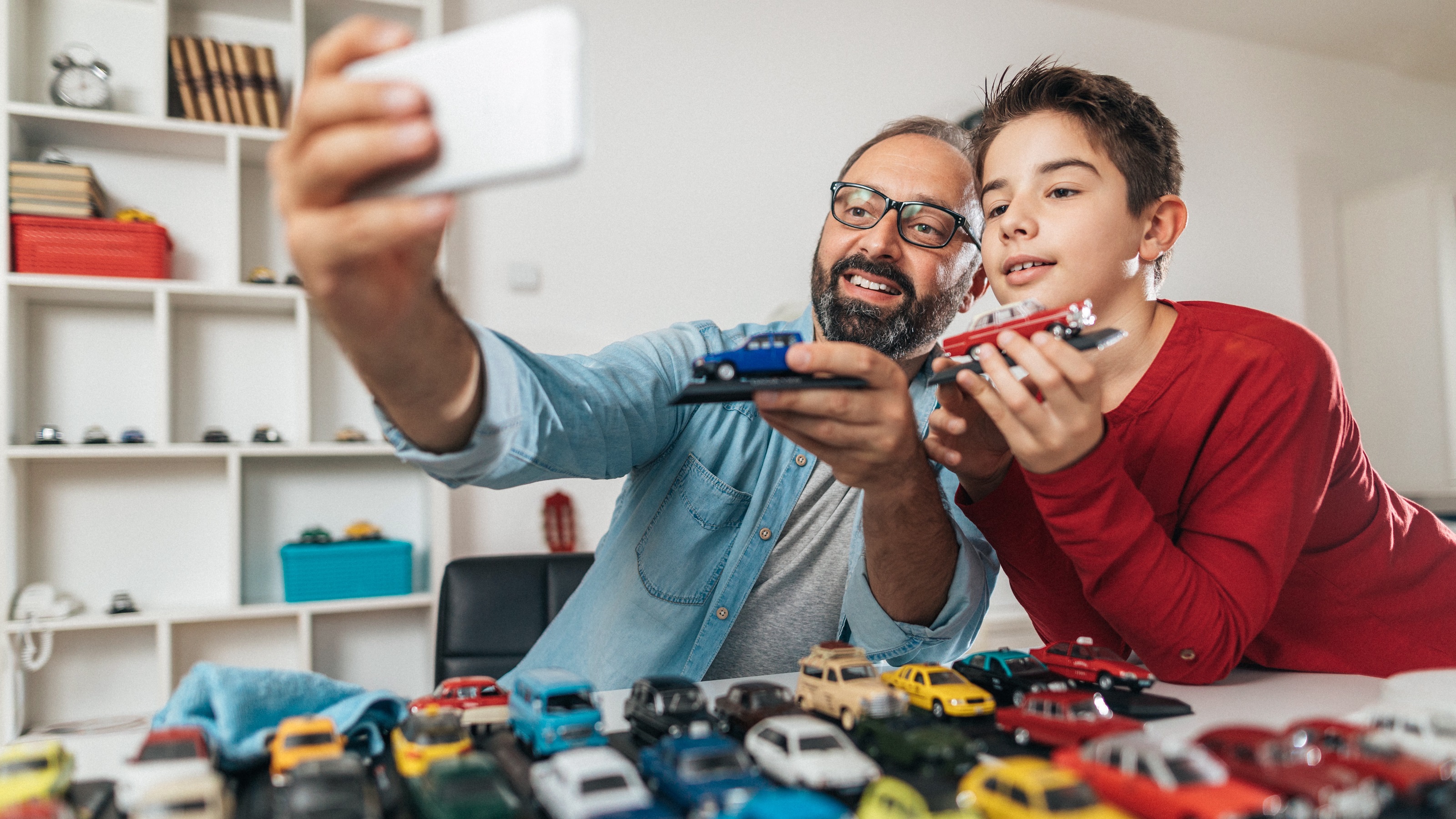
Like many collectors, you’ve developed a deep knowledge about whatever it is you’ve collected over the years. And, if you’re like many collectors, your kids probably don’t share your passion.
That’s OK. They have their own collectibles, and you can use your expertise to help them get the most out of their passions.
Say you collect baseball cards. You might enjoy the chase of tracking down players for autographs. Maybe you even recognize certain players in public from hundreds of yards away. But your kids, especially when they’re young, might not want to spend hours at baseball conventions or spring training games. They might be more interested in kid collectibles like Funko Pops or limited-edition sneakers.
While you might not understand the attraction, you can pass on collecting best practices that will serve them well and strengthen your bonds. I’ve found this to be true with my kids. I love to collect autographed baseball cards, but my son was far more interested in Lego sets.
It doesn’t matter what you or your kids collect. Finding common ground in your passion can build a bridge between generations, leading to closer relationships. It’s also practical: When it’s time for your kids to inherit your property, they’ll know where everything is, how it’s categorized, where it’s insured and so on. They’re not going to maintain your collection, but they’ll be informed when it comes time to deal with it. (To learn more about making it easier for them when the time comes, read my article Estate Planning for Memorabilia Collectors: Don’t Leave Your Family in the Lurch.)
How to Go About It
One way to encourage the collecting bug — as well as teach good practices — is to be open about how your collection has increased in value over time. (Or not increased.) It can be eye-opening for them to discover, for example, that a single baseball card could pay for a house.
Even if they don’t care about the items you’ve gathered, chances are they respect your financial acumen and investment experience. Having a conversation like that may spark curiosity and lead to more discussions about how to track value and what an item or collection might be worth in the future. Online auction catalogs, such as Heritage Auctions or Robert Edward Auctions, are great places to see what’s hot and may also yield some surprises. Who in the 1980s thought VHS tapes would be collectors’ items?
An item’s value is tied to its condition. That’s something else you can teach your kids: Take care of things. It might pay off. Maybe your 25-year-old has some old Pokémon cards lying around that are now worth hundreds of dollars. That’s a great example of how collecting works.
Collecting also provides the opportunity to discuss the difference between a purchase and an investment. The Beanie Babies craze is a good example: Those stuffed dolls didn’t turn out to be good investments, but people were passionate about their Beanie Babies, so they may have been worthwhile purchases for them anyway. The message there is: If you’re passionate about something, embrace it, but be clear-eyed about why you’re collecting it.
The Best of Both Worlds
Collecting something you’re not passionate about is risky. If the investment doesn’t pay off, you’ll have lost money and be stuck with something you don’t care about — like 200 rookie cards of a baseball player you thought might be the next Mickey Mantle.
When you can buy something you love that also has investment potential, it’s the best of both worlds.
As with any investment, it’s wise not to expect too much. It’s an important message for your kids. It’s a rude awakening to learn that an asset you thought was a solid investment isn’t worth much now due to changing trends, its condition or other reasons.
The social component of collecting is another major point to pass along; it might even help your kids in their careers. If you’re passionate about something, you love to talk about it. You engage with people around your shared interests — and they may end up helping you in your career along the way. It’s the best form of lead generation. If you can do something you enjoy and it happens to be profitable, all the better.
Different things resonate with different generations. My son wanted to attend Comic-Con, a huge convention for comic book enthusiasts’ collectors. While I wouldn’t normally have an interest in comic books, we attended together and shared a wonderful experience focused on his passion, versus my own.
Even the world of sports memorabilia is changing, with NFTs becoming part of the market. While those might be risky, the trend has brought new collectors into the fold. If your kids are showing an interest, there’s a good chance you’ll learn something from them.
If you’re lucky, your kids will share your passion. But they probably won’t. All the better. Take this opportunity to let them teach you something new. While you’re squeezing in some lessons about baseball cards — and learning about classic cars — you’ll be building a lasting bond.







